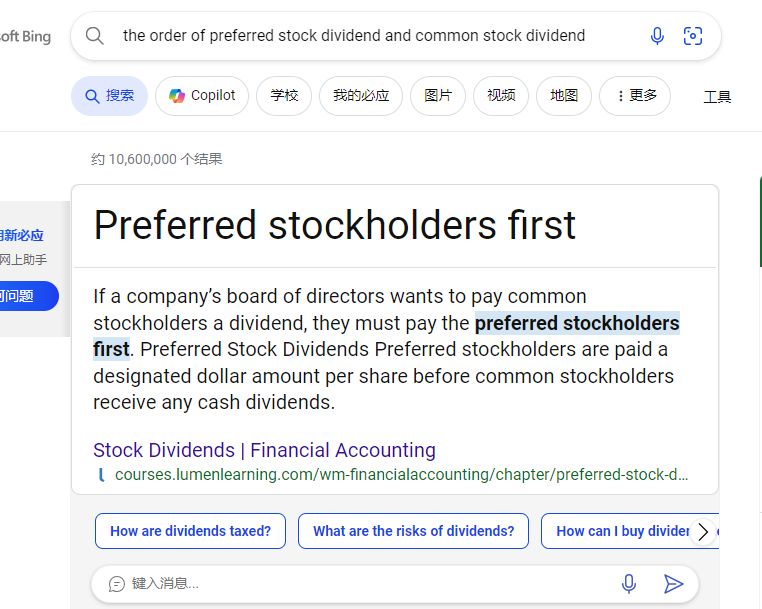NO.PZ2015122801000026
问题如下:
Which of the following statements is not the advantage of convertible preference shares?
选项:
A.
The conversion option becomes more valuable when the common stock price increases.
B.
The preferred dividend is higher than a common dividend.
C.
Convertible preference shares make it possible for minority shareholders to have more proportional representation on the board.
解释:
C is correct.
Rather than convertible preference shares, cumulative voting would benefit minority shareholders to have proportional representation on the board by allocating their votes to one or more candidates as they choose.
C是正确的
本题考察的是可转换优先股的几个优点。
如果普通股股价上升,优先股转成普通股就可能获得投票权,就可能对公司经营有话语权,所以这种转换权的价值会提升。所以A对。
由于普通股的股利是公司自愿发放的,而优先股的股利,无论公司自愿与否都要发放,所以通常优先股获得的股利会高于普通股。所以B对。
C的描述是描述的是累计投票(cumulative voting)的一大优势而非可转换优先股的优势。无论是否为可转换优先股持股人,只要是少数股东,都可以通过累计投票来获得更多的话语权。所以和可转换优先股的关系很小,选C。
老师好,我理解优先股div不一定高于普通股,有2个原因:
1. 课上老师讲优先股股利也不是必须发放,公司业绩不好的时候就不发了
2. 业绩好的时候普通股股利数额是没有上限的,但优先股股利是固定的,除非是participating preferred stock
所以感觉优先股是在满足某些条件的情况下才有高于普通股的div,您看我的理解那里有问题呢?




